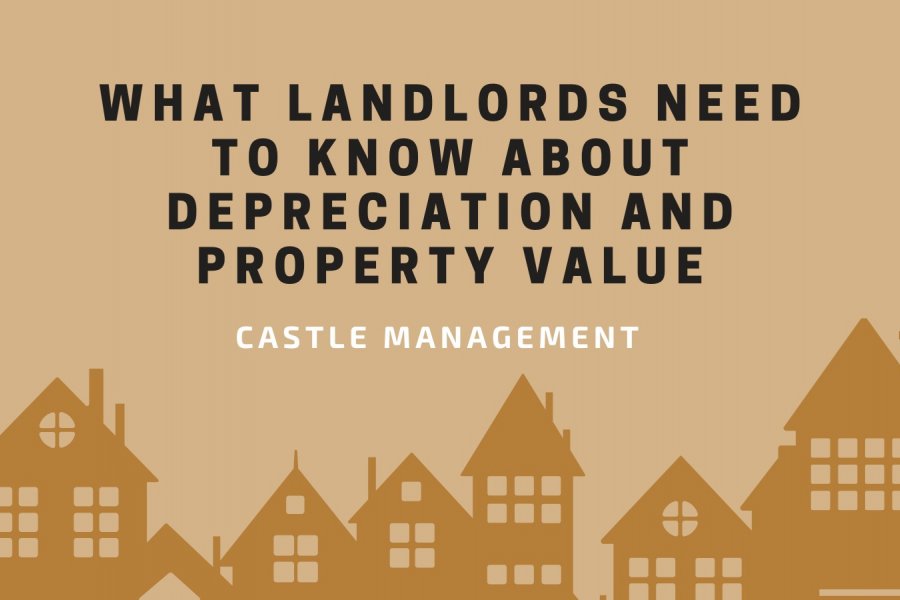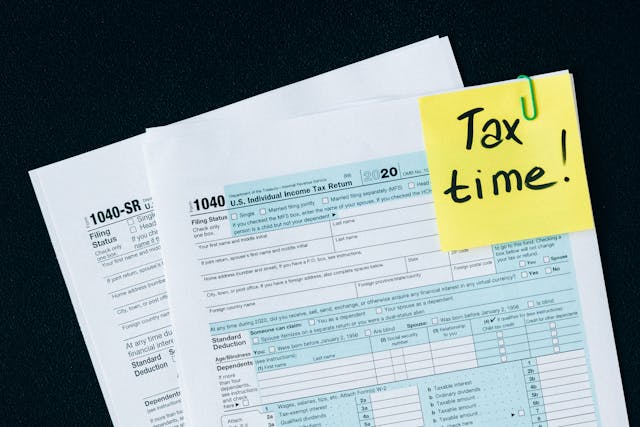
- Depreciation Is Your Friend at Tax Time: It lets you deduct a portion of your building’s value each year, helping you reduce taxable income and improve cash flow without dipping into your pocket.
- Smart Strategy = Better Returns: Whether you’re holding or planning to sell, factoring in depreciation and recapture tax helps you make smarter decisions and protect your long-term investment goals.
Are you a multi-family rental property owner wondering how depreciation impacts your property’s value and your bottom line? Understanding depreciation can feel complicated, but it plays a crucial role in managing your investment wisely. For landlords in the Bay Area, working with Castle Management means having expert guidance to navigate these financial details confidently.
Depreciation affects not only your tax strategy but also how you view the long-term growth of your property’s worth. In this article, we’ll break down what you need to know about depreciation and property value so you can make smarter decisions for your multi-family rentals and maximize your returns in a competitive market.
Learn How We Can Help You Maximize Your Home’s Potential!
Understanding Depreciation Basics for Rental Properties
Depreciation allows landlords to deduct the cost of their multi-family property over time, reflecting wear and tear or aging. For landlords, this means spreading the building’s purchase price (excluding land) across a set number of years, typically 27.5 years for residential properties.
This process reduces your taxable income annually, helping you save on taxes while owning the property. It’s essential to remember that depreciation doesn’t affect the actual market value, but rather enables you to manage your finances more efficiently.
How Does Depreciation Affect Your Tax Benefits?
Depreciation is one of the most valuable tax advantages for multi-family property owners in the Bay Area. By claiming depreciation, you lower your taxable rental income each year, which can result in significant tax savings.

The IRS recognizes this as a non-cash expense, meaning it reduces your taxes without affecting your cash flow. This benefit encourages long-term investment in rental properties, making it easier to maintain and improve your multi-family units while maximizing your after-tax income.
The Role of Useful Life in Depreciation Calculations
Useful life refers to the IRS-determined time frame over which your multi-family property can be depreciated. For residential rental buildings in California’s Bay Area, the standard useful life is 27.5 years. This period reflects how long the IRS expects the property to provide value before needing major repairs or replacement.
Knowing this helps landlords plan depreciation deductions accurately and understand when those deductions will end, which is essential for budgeting and forecasting your investment’s financial performance.
Why Partner with Castle Management?
Differentiating Between Land and Building Value
When calculating depreciation, it’s important for landlords to separate the value of the land from the building itself. Land does not depreciate, so only the building’s value can be written off over time. During your property purchase or assessment, the price is divided based on appraisals or tax assessments.
This distinction ensures you don’t mistakenly depreciate land value, which could cause issues with tax filings. Properly separating these values allows for accurate depreciation and keeps your accounting aligned with IRS rules.

Methods Landlords Use to Calculate Depreciation
Bay Area landlords with multi-family properties typically use the straight-line method to calculate depreciation. This method spreads the building’s cost evenly over 27.5 years, providing a consistent annual deduction. It’s simple and IRS-approved, making it easy to plan your tax benefits.
While some may consider accelerated methods, these are generally not applicable for residential rental properties. Understanding this method helps you estimate your yearly tax savings clearly and plan your finances with confidence.
Learn More About Castle Management!
Impact of Depreciation on Property’s Book Value
Depreciation reduces the book value of your multi-family property over time, which is the value recorded on your financial statements. Although the market value in the Bay Area might increase, your book value decreases as you claim depreciation each year.
This difference is important when selling or refinancing because your tax obligations depend on the book value, not the market price. Keeping track of this helps you prepare for potential tax consequences and better understand your property’s financial position.
When and How to Apply Depreciation Recapture?
Depreciation recapture happens when you sell your multi-family property for more than its depreciated book value. The IRS requires you to pay taxes on the accumulated depreciation deductions at a specific rate.

This ensures you don’t get a permanent tax break on depreciation claimed over the years. Knowing when and how recapture applies allows you to plan the sale strategically and avoid surprises at tax season, preserving your investment gains.
How Does Depreciation Influence Long-Term Investment Strategy?
Depreciation plays a key role in shaping your long-term approach to owning multi-family rentals in the Bay Area. It provides annual tax savings that improve cash flow, which you can reinvest to maintain or upgrade your properties.
Over time, understanding depreciation helps you decide when to hold or sell based on tax impact and property value growth. A well-planned strategy incorporating depreciation benefits ensures you maximize ROI while managing expenses smartly in a competitive market.
Discover Our Property Management Services!
Bottom Line
Navigating depreciation can be complex, but it’s also one of the smartest tools multi-family landlords can use to boost long-term gains. If you own rental property in the Bay Area, Castle Management can help you understand how depreciation fits into your broader investment goals.
From clarifying your property’s value breakdown to planning for future tax impacts, our team can guide you each step of the way. Reach out to Castle Management to explore what’s right for your property and financial future.
